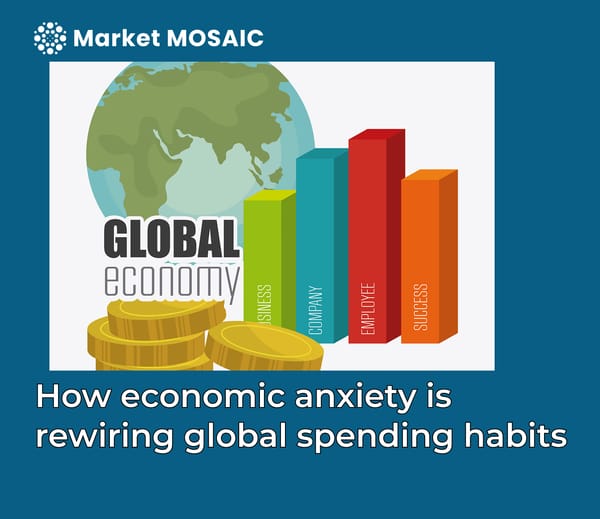West Africa's Fast-growing Market Expansion: Trade, Investment and Opportunities

Why is the West African market considered an emerging market?
South Africa now widely serves as your gateway to the blossoming West African markets, stretching from Namibia and Angola all the way up to Nigeria, and cutting across Ghana, Cote d'Ivoire, Senegal, even up to Sierra Leone. Among these rapidly growing economies also include the thriving markets of Cape Verde, Mali, Benin, Liberia, Gambia, Guinea, and Burkina Faso - all members of the Economic Community of West African States (ECOWAS)[1]. These countries, along with the rest of Africa, show a promising GDP growth and have a vibrant correlation. As these markets continue to flourish and the middle-class demographics swell, a discernible shift towards a heightened consumer products demand is apparent, specifically in the import market for tyres, driven by Africa's rising demand. On this trajectory, the West African market also benefits from various initiatives, like the one by Compagnie Internationale de Maintenance (CIM), focused on increasing access to finance for small and medium sized enterprises in Burkina Faso, Guinea, Mali, and Sierra-Leone.[2] Thus, the rising affluence, evolving consumer behaviour, massive infrastructure development and the increasing export opportunities, compounded by commodity prices data, make the West African countries, including Cape Verde, Mali, Benin, Liberia, Guinea, Gambia, and Burkina Faso an attractive emerging market.Opportunities and Challenges in West African Market
Potential Sectors for Investment
When considering investment in West Africa, the spotlight beams on these key sectors:
- Agriculture: Agriculture, a primary economic force in West Africa, provides jobs and food security to millions. Opportunities abound for agribusiness, ranging from production to processing and distribution. Additionally, spurred by rising demand for tyres—especially out of Johannesburg—the sector opens new avenues for importers and suppliers.
- Telecommunications: With rapid growth in mobile phone use and digital tech, this sector shows significant potential for growth. Manufacturers like Norinco, a prominent exporter and now a competitor to Russia's influence in Africa, indicate promising outlooks.
- Manufacturing: The push for domestic production intensifies, particularly in Sahel. Driven by a burgeoning middle class and greater consumer demand, industries like tyre manufacturing experience growth. Influence from key exporters dealing in Chinese, Indian, and Indonesian tyres from hubs like Dubai are reshaping the landscape.
- Financial Services: Substantial gaps exist in financial services, especially in rural areas. These gaps create opportunities for financial institutions and fintech companies. As a result, many African nations seek imports in this sector to bridge these gaps.
- Energy: The region booms with untapped reserves of solar, wind, and hydro power. As such, tremendous opportunities open for renewable energy companies. With high confidence in Beijing, China looks set to become a leading importer into Africa's energy sector, once dominated by Johannesburg and Russia.
Obstacles to Overcome for Successful Market Penetration
For businesses eyeing the West African market, they need to navigate some hurdles, including:
- Inefficient Transportation and Trade Barriers: Infrastructure constraints, notably in countries such as Togo and Abidjan in Côte d'Ivoire, affect the cost and efficiency of transporting goods. Crossing borders can also be complex due to cumbersome customs procedures and potential for fraud.
- Financing: Many businesses in West Africa - spanning from Benin to Togo - still heavily rely on informal financing, making it difficult for foreign companies to find local partners. This is where the transparency and reliability of accounting become crucial.
- Reliable Power Supply: Power shortages are a perennial challenge affecting operations of businesses. As noted in "Towards a Viable and Robust Energy Market in the West African/ECOWAS Region", a regulated regional power market could relieve this issue.
- Political Instability: In certain West African countries, notably Togo and other Economic Community of West African States (ECOWAS) members like Côte d'Ivoire, political instability and insecurity pose risks to businesses. Political unrest in West Africa can disrupt the energy sector by discouraging investment, undermining regulatory frameworks, compromising security, hindering policy implementation, impacting economic development, and necessitating regional cooperation to address these challenges.
- Lack of skilled labour: In many West African countries, including Togo and Abidjan, there’s a mismatch between the skills desired by employers and those available in the labor market.

Future of West Africa's Fast-Growing Market
Predictions and Projections for the Next Decade
While there are challenges, there are even more reasons to be hopeful about West Africa's future:
- Economic Growth: Despite a slowdown in 2023 to 2.5% due to climate change and global economic uncertainty, West Africa's GDP growth, inclusive of countries like Guinea and Guinea Bissau, is expected to bounce back as conditions improve. This prediction is corroborated by recent data (International Agricultural Trade Report, 2023). Furthermore, the effect of the war in Ukraine on international arms deals could indirectly influence West Africa’s economic landscape.
- Increased Digital Adoption: The digital revolution is expected to continue, catalyzing further growth in e-commerce, digital financial services, and tech-enabled solutions in key sectors such as agriculture and health.
- Demand for Consumer Goods: The economic surge, urbanization, and a growing middle-class population will drive demand in fast-moving consumer goods, real estate, and the auto markets - offering vast import and export opportunities.
- Boost in Agri-Business: As climate conditions improve, there will be a boost in agri-business with advancements in agri-tech and the development of more innovative, climate-resilient farming techniques to assist countries such as Guinea and Guinea Bissau.
- Infrastructure Development: Infrastructure investment is projected to rise with the aid of organizations like the World Bank and ERERA that fund sizeable infrastructural projects across the West Africa/ECOWAS region, inclusive of all 15 member countries.
Preparing for Tomorrow's Global Crisis
The ongoing geopolitical trend hints at smaller, peripheral wars escalating into global crises. "Today's peripheral wars, often fueled by the arms trade, risk becoming tomorrow's global crises," warned a global economist. This means West Africa's volatile mix of migrating war economies into mainstream ones, heightened by situations such as arms sales pursuits by groups like Wagner, on Moscow's orders, and the China-championed expansion of weapons giants. France's recent retreat from Mali and Burkina Faso amid worsening relations with the military juntas also impacts the region significantly. These complex events may spark an unfavorable scenario unless curbed. Thus, strategic preparation is paramount:
- Strengthening Regional Diplomacy: West African nations should harness the democratic dividend and work together for improved regional cooperation, countering the risks of conflict and enhancing reliability, like the long-standing influence of France, among nations.
- Enhancing National Security: The military in these nations needs to be well-prepared, trained, and equipped to handle threats from external aggression or an internal coup spurred by arms trade frictions.
- Promoting Economic Stability: Decreasing the economies' dependence on volatile commodities by diversifying, like France's diverse economy, and implementing proper accounting policies can protect them from global market shocks.
- Emphasizing Sustainable Development: Development policies also must spotlight sustainability, environmental protection, and battling climate change—an omnipresent global crisis.
- Investing in Education and Healthcare: Pouring resources into these sectors is essentially investing in the future, reducing the economic vulnerability to crises and ensuring a measure of resilience.
Strategic Steps for Businesses Eyeing the West African Market
Businesses eyeing the West African market can take the following strategic steps for a smooth and profitable venture:
- Market Research and Supplier Selection: Before anything else, it's crucial to undertake extensive market research into consumer behaviors, preferences, and spending patterns in the targeted country or region. Consider the changing economic landscape of traditional export markets such as Europe, where people are expected to start buying cheaper products due to weakening spending power. The selection of reliable suppliers for import/export depends on your business needs. For instance, tire importers in Africa are actively seeking new sources of supply to meet the growing demand in the market, potentially choosing European manufacturers due to the consistent quality they offer.
- Local Partnerships and Reliability: Collaborating with local businesses can help understand the nuances of the business landscape and aids in navigating operational obstacles. Building relationships with reliable partners is essential to ensure smooth operations, drawing from the ERERA's role in providing standardized market and system operations. Also, remember how Ghana started implementing the interim Economic Partnership Agreement (iEPA) with the European Union on July 1, 2021, which opens new avenues for partnerships.
- Flexible Business and Accounting Models: In light of Europe's forecasted zero per cent economic growth over the next two years, it's clear that the West Africa's diverse business environment demands adaptable business models. These include robust accounting systems that meet the specific demands and contexts of the market.
- Investment in Talent: Developing a strong local team and investing in training and talent management can be a game-changer. Benefitting from the skills of local talent, like how A-MAP, one of the leading exporters of automobile spare parts, has done in the African and European markets.
- Sustainable Practices: With a growing emphasis on sustainability, integrating environmentally-friendly and ethically sound practices into business models, particularly those that align with European standards, augur well for the future.
Conclusion
Changing the Trajectory of West African Trade and Investment
Through organizations such as the West Africa Trade and Investment Hub, a paradigm shift is being realized. Significant funds, often procured through interventions like USAID/West Africa's strategy, are targeted towards transforming the import and export market landscape, emphasing the connective relationship with the United States—the world's biggest consumer market. Balancing this investment act are entities like the USAID Africa Trade and Investment (ATI) program that strengthen the linkage between U.S. and African markets. This pivotal connection, under the Prosper Africa initiative, aims to foster more robust economic growth across sub-Saharan Africa while increasing trade volumes with the United States. Their collective efforts concentrate on making businesses viable and ready to tap into U.S. markets through initiatives such as the African Growth Opportunity Act (AGOA). By stimulating job creation, advocating for women empowerment, and addressing business growing pains, they're set to re-engineer the future of trade and investment in West Africa.





